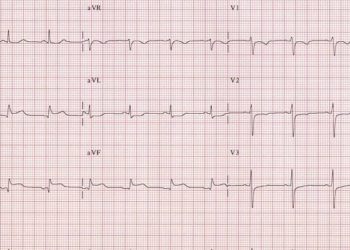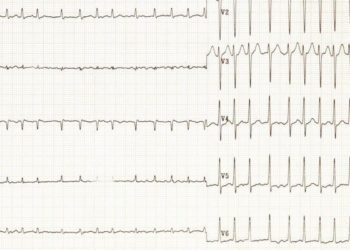#VisualAbstract: Complete Revascularization with Multivessel PCI for Myocardial Infarction
1. In patients with STEMI and multivessel coronary artery disease, those randomized to the complete revascularization group experienced lower rates of cardiovascular death or myocardial infarction (MI) at 3 years compared to patients who were randomized to the culprit-lesion-only percutaneous coronary intervention group.
2. Both groups experienced similar rates of major bleeding, stroke, or stent thrombosis.
Evidence Rating Level: 1 (Excellent)
Study Rundown: Percutaneous coronary intervention (PCI) is the method of choice for revascularization in patients with ST-segment elevation myocardial infarction (STEMI). Although many of these patients have multivessel coronary artery disease (CAD), previous studies have not adequately addressed whether revascularization of nonculprit lesions in these patients provides a cardiovascular mortality benefit or decreased risk of MI. The Complete versus Culprit-Only Revascularization Strategies to Treat Multivessel Disease after Early PCI for STEMI (COMPLETE) trial evaluated coprimary outcomes of cardiovascular death or MI, and of cardiovascular death, MI, or ischemia-driven revascularization. This trial found that both coprimary outcomes occurred more frequently in the culprit-lesion PCI group compared to the complete-revascularization group at median follow-up of 3 years. No major differences in rates of major bleeding, stroke, or stent thrombosis were identified between the two groups.
This large, multinational, randomized controlled trial provides evidence that favors complete revascularization over culprit-lesion PCI in patients with STEMI and multivessel CAD. Limitations include lack of evaluation of nonculprit-lesion PCIs performed during the index PCI, no enrollment of patients with cardiogenic shock, and the high rate of complete revascularization attained in patients assigned to this group.
Click to read the study in NEJM
©2019 2 Minute Medicine, Inc. All rights reserved. No works may be reproduced without expressed written consent from 2 Minute Medicine, Inc. Inquire about licensing here. No article should be construed as medical advice and is not intended as such by the authors or by 2 Minute Medicine, Inc








